CHALLENGE 07
Eye in the Sky
Challenge Overview
Climate change presents environmental, social and economic crises on a whole new level. Human activity is today creating a non-negligible point of impact on our planet’s climate, and until now it’s been remarkably difficult to monitor and analyse the environment so that we can build a climate-stable future.
Microsoft has created the Planetary Computer for you to solve this challenge – an online supercomputer combining petabytes of global environmental data with an intuitive interface and flexible scientific environment, putting answers in the hands of conservation stakeholders who are on the front lines tackling big impact scientific questions about our environment.
Your challenge is to use the Planetary Computer to produce a commercially viable solution to enable organisations across the world to reduce and halt their contributions to the deterioration of environmental ecosystems.
Your Objectives:
- Your challenge is to build a product to measure, monitor, model, and/or manage healthy ecosystems to enable organisations to stop their contribution to the deterioration of ecosystems. The product should be built on top of the Planetary Computer using the Azure Orbital Analytics reference architecture.
You can take some inspiration from the array of existing applications others have created on the platform, which you can look at here. - Show how this product can scale and be part of a mature sustainability market with a 3-minute video demonstrating and pitching your proposed solution. You can follow any narrative structure you prefer, but one you could follow is walking through the stages of: What is the problem? What should the solution resemble? What is your technology to realise this? What’s your proposed business model? Who are your first target customers, and how do you know they really want your solution? What’s your assessment of the market opportunity? What does the competitive landscape look like? Who is your A-team and why are you the best to build this? What would come next to make it real? What would you need to do that?
NOTE: Teams may perform background research before the event, but any group that starts building before the 48 hour timer starts will be disqualified.
Your Rewards:
First Prize
- $1000 cash
- $2000 worth of units in our 2022 fund (i.e. targeting 12 space tech investments)
- Moonshot t-shirts – 60 minutes of free Moonshot coaching
- A copy of ‘Space is open for business’ by Robert Jacobsen
Second Prize
- $500 cash
- $1000 worth of units in our 2022 fund (i.e. targeting 12 space tech investments)
- Moonshot t-shirts – 60 minutes of free Moonshot coaching
- A copy of ‘Space is open for business’ by Robert Jacobsen
Third Prize
- Moonshot t-shirts
- 60 minutes of free Moonshot coaching
- A copy of ‘Space is open for business’ by Robert Jacobsen
Challenge Sponsor Prize
- Copy of Blitzscaling: the lighting-fast path to building massively valuable companies by Reid Hoffman and Chris Yeh
- One-on-one mentoring with Microsoft Azure Space team members about your career, the space industry, your company/product, or anything else.
- Azure credits of $1000
Considerations and FAQs:
- The Planetary Computer has four components:
-
-
- The Data Catalog includes more than 24 petabytes of data, including Earth Observation data, made available for free in consistent, analysis-ready formats.
- APIs that allow users to easily query data across space and time
- The Hub, a managed computing environment that makes data and APIs easily accessible.
- Applications from partners that are built on top of the Planetary Computer platform.
-
- The Azure Orbital Analytics reference architecture can use Airbus, NAIP/USDA (via the Planetary Computer API), and Maxar imagery, as well as bring your own data.
- There is no requirement to build a functioning product on Azure. However, if you do decide to do so you may want to:
-
-
- Request access to the Planetary Computer Account. This should be done before the bootcamp, at least 24 hours before bootcamp kick-off.
- An Azure account.
i. Sign up for an Azure account and use the free services. Note: if you use services that are not free services, you will be charged.
ii. Moonshot has 50 Azure Pass Subscription codes with $50 USD Azure credits. Please contact a Moonshot team member to redeem a code.
-
Resources:
- Planetary Computer
- Azure Orbital Analytics Samples Reference Architecture on GitHub
- Geospatial analysis with Azure Synapse Analytics – Azure Example Scenarios | Microsoft Docs
- Microsoft’s 2021 Environmental Sustainability Report
- Empowering space development off the planet with Azure | Azure Blog and Updates | Microsoft Azure
Join our serverto enter the competition
Join our community below to join Bootcamp discussions and to prepare for the event. Share your thoughts, advertise your skills, and find a well-rounded team to register before launch on May 6.

